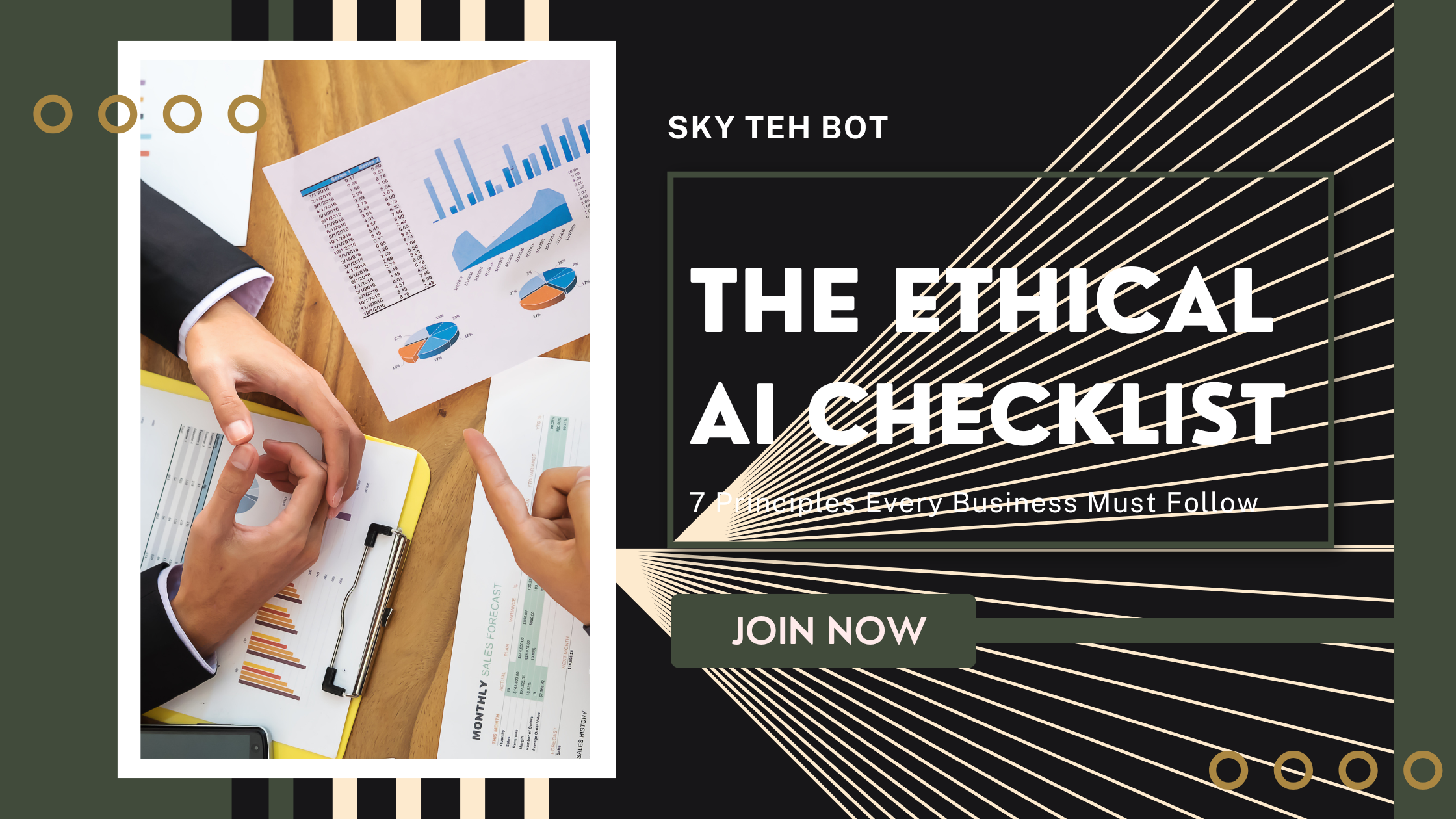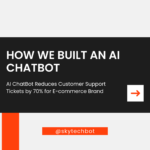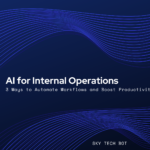As AI becomes embedded in every facet of business, a critical question emerges: Are we building technology that serves humanity, or are we creating unchecked systems that risk harming our customers, our reputation, and society?
Ethical AI isn’t a buzzword or a public relations tactic. It’s a fundamental business imperative. An unethical AI system can lead to legal liability, brand damage, and a catastrophic loss of customer trust.
The good news is that building responsible AI is achievable. Use this practical 7-point checklist to guide your development and deployment process, ensuring your AI solutions are as principled as they are powerful.
1. Fairness & Bias Mitigation: Is Your AI Unfairly Discriminating?
AI models learn from data, and if that data contains human biases, the AI will amplify them.
- Check: Have we audited our training data for historical biases related to gender, race, age, or geography?
- Check: Are we continuously testing our model’s outputs for discriminatory patterns across different user groups?
- Action: Implement bias detection tools and establish a diverse review team to assess AI decisions.
2. Transparency & Explainability: Can You Explain the “Why”?
A “black box” AI that no one can understand is a liability. Stakeholders need to know how and why a decision was made.
- Check: Can our AI provide a simple, understandable reason for its output (e.g., “Loan denied due to high debt-to-income ratio”)?
- Check: Are we clear with users when they are interacting with an AI and not a human?
- Action: Prioritize explainable AI (XAI) techniques and ensure user interfaces clearly communicate the AI’s role.
3. Accountability & Human Oversight: Who is in Control?
An AI should augment human intelligence, not replace human responsibility.
- Check: Have we designated a specific person or team accountable for the AI’s performance and impact?
- Check: Is there a clear, easy path for users to appeal an AI decision and reach a human?
- Action: Establish a human-in-the-loop (HITL) review process for high-stakes decisions and create an AI governance framework.
4. Privacy & Data Security: Is User Data Protected?
AI systems often process sensitive personal data. A breach is not just a security failure; it’s a betrayal of trust.
- Check: Are we collecting only the data strictly necessary for the AI to function?
- Check: Is user data anonymized or pseudonymized, and are we compliant with regulations like GDPR or CCPA?
- Action: Implement “privacy by design” principles and use state-of-the-art encryption and access controls.
5. Robustness & Safety: Will It Fail Gracefully?
An AI must be reliable and secure against errors, misuse, or malicious attacks.
- Check: Have we stress-tested the AI with unexpected inputs or “adversarial attacks” to see how it responds?
- Check: Does the system have built-in fail-safes to prevent catastrophic failure if the AI makes a mistake?
- Action: Conduct rigorous testing in controlled environments before full deployment and plan for continuous monitoring.
6. Social & Environmental Benefit: What is the Net Impact?
Technology should aim to make the world better. Consider the second-order effects of your AI.
- Check: Have we assessed the potential impact of this AI on jobs, society, and the environment?
- Check: Could this technology be misused for harmful purposes? What safeguards are in place?
- Action: Conduct an ethical impact assessment and prioritize projects that create positive social value.
7. Contestability & Redress: Can Users Challenge It?
Every user deserves the right to question an AI’s decision and seek a correction.
- Check: Is there a simple, accessible process for a user to report an error or challenge an AI’s output?
- Check: Do we have a clear protocol for investigating disputes and rectifying mistakes promptly?
- Action: Build a clear “Report an Issue” feature into every AI interaction and commit to a swift resolution timeline.
Ethical AI is a Journey, Not a Destination
This checklist is not a one-time exercise. Ethical AI requires ongoing commitment, vigilance, and a willingness to adapt as technology and societal norms evolve. By embedding these principles into your culture and processes, you build more than just a product—you build trust.
Trust is the ultimate competitive advantage in the age of AI.
Build AI you can be proud of. At Sky Tech Bot, we believe that powerful technology must also be responsible technology. We build ethical, transparent, and secure AI solutions from the ground up. Learn About Our Approach to responsible innovation and let’s build a better future, together.


